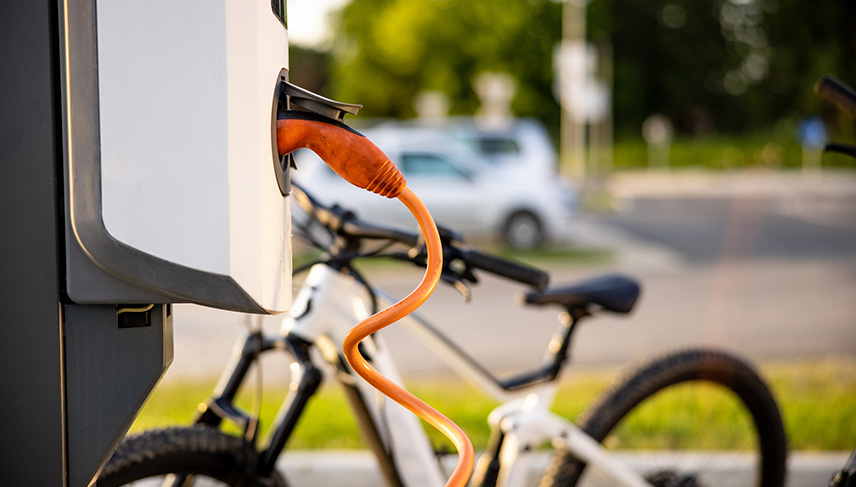The Hidden Fire Hazards behind Powering Ebikes

04 Apr 2024
Safeguarding through compliance with industry standards and consumer education to mitigate the risks associated with lithium-ion batteries
The popularity of electric bikes (eBikes) and other battery-operated micromobility devices like electric scooters (e-scooters) and hoverboards has surged in recent years, with eBike sales in the U.S. growing a staggering 269% between 2019 and 2022. But this popularity brings with it risk: hundreds of fires linked to eBike batteries have resulted in fatalities, injuries, and property damage. EBikes rely on lithium-ion batteries for power, and improper storage or charging can pose fire hazards. Additionally, the proliferation of low-quality eBike batteries, sold as replacement parts or used by consumers modifying their bicycles, adds to the safety concerns.
According to the U.S. Consumer Product Safety Commission (CPSC), between January 1, 2021, and November 28, 2022, there were 208 reported micromobility fire or overheating incidents, resulting in at least 19 fatalities and 22 injuries requiring emergency room treatment. In response to these alarming statistics, the CPSC issued a letter in December 2022 urging manufacturers of eBikes, e-scooters, and hoverboards to ensure compliance to established voluntary safety standards by certification from an accredited testing laboratory or face potential enforcement actions.
The current safety standards for eBikes and micromobility devices include ANSI/CAN/UL 2849 and ANSI/CAN/UL 2272. These standards address the risk of fires associated with these products and aim to prevent serious injuries or fatalities.
ANSI/CAN/UL 2272 sets the safety standard for the electrical drive train, including the battery system, of personal e-mobility devices. While initially focused on hoverboards, its principles apply broadly, ensuring that electrical components and systems are designed and tested to operate safely under normal conditions and foreseeable misuse. Compliance with ANSI/CAN/UL 2272 from a Nationally Recognized Testing Laboratory (NRTL), such as Intertek, means an eBike's electrical system has undergone rigorous testing to help prevent electrical fires and mechanical malfunctions, ensuring rider safety.
The ANSI/CAN/UL 2849 standard specifically addresses the safety requirements for electric bicycles. This standard encompasses electrical, mechanical, and environmental tests to ensure the safety of eBikes under various operating conditions. Compliance with ANSI/CAN/UL 2849 signifies that an eBike not only meets specific electrical safety requirements but also adheres to critical performance criteria, including mechanical stability and environmental resilience, further safeguarding the rider and the environment.
While there are no specific codes addressing charger safety, sections in the National Fire Protection Association (NFPA) Code and National Electric Code (NEC) are applicable. The NFPA has also published guidelines for the safe storage and charging of eBikes, including:
- Only purchasing and using devices, batteries, and charging equipment listed by a nationally recognized testing lab.
- Using only the battery and charger designed for and provided with the device.
- Avoiding overcharging the battery.
- Storing eBikes, e-scooters, and batteries away from exit doors and potential fire hazards.
- Ceasing use of the device if any abnormalities are observed in the battery.
In addition, it's important to properly dispose of lithium-ion batteries by recycling them rather than throwing them in the trash.
Consumer education and awareness about proper storage and charging practices is essential in mitigating hazards associated with eBike batteries. By adhering to safety standards and guidelines, we can enjoy the benefits of eBikes and other micromobility devices while minimizing the risks they pose.

Rich Byczek,
Global Technical Director, Transportation Technologies
Rich Byczek is the global technical director for electric vehicle and energy storage at Intertek. He has more than 20 years of experience in product development and validation testing and is an expert in the areas of energy storage, audio equipment and EMC. Rich sits on several SAE, IEC, UL, and ANSI standards panels.